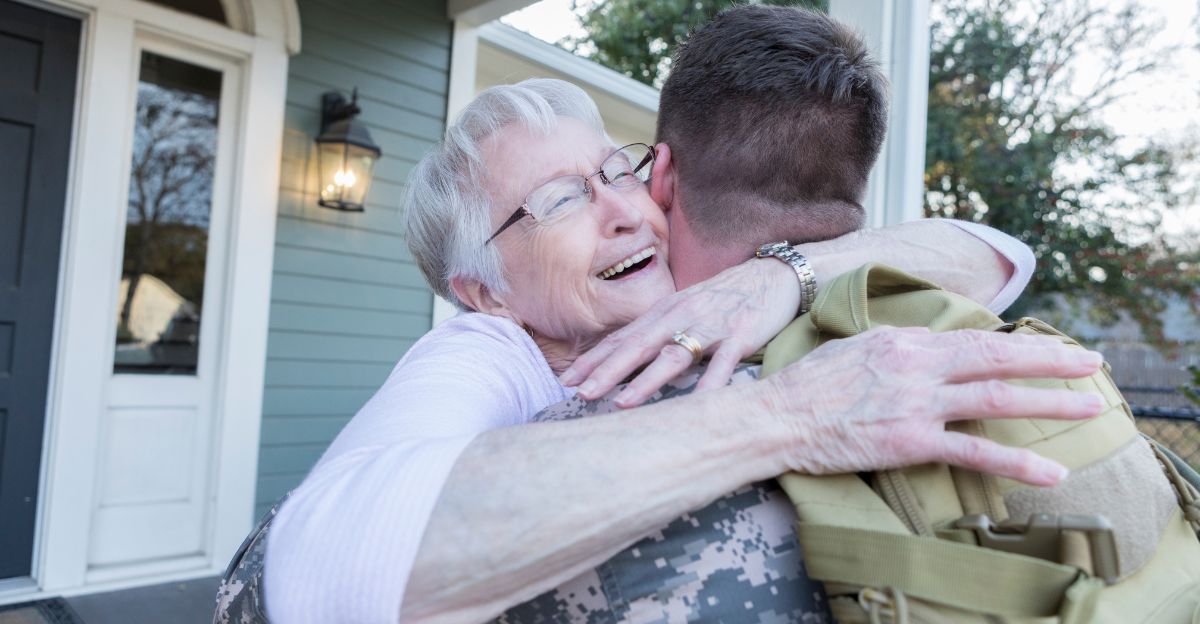
Behind every packed lunch, handmade Halloween costume, and late-night comforting word, there were small choices that added up to enormous sacrifices.
Boomer moms rarely talk about what they gave up, but their quiet acts have shaped entire generations. What looked effortless was often exhausting, and their love, though rarely verbalized, became the blueprint for endurance.
Security

They weren’t hailed as heroes or visionaries, but somehow, they built stability out of thin air. These women stitched security into our daily routines while quietly sidelining their dreams.
Each of their sacrifices carried emotional and cultural significance that still defines us today. Now, let’s take a look at nine quiet sacrifices Boomer moms made to make our lives better.
1. Their Dreams

Jobs left behind. Passions put on hold. Degrees left unfinished. Many Boomer moms traded their personal ambitions for domestic duty, believing that fulfillment would come through family.
They belonged to a world where women were seen as selfish if their dreams didn’t revolve around other people. But their potential never vanished; it simply became the foundation beneath ours.
The Cost Behind That Choice

Imagine having a spark inside you, maybe to paint, write, build, or explore, and choosing to ignore it for the people you love most in the world. That was their quiet reality.
They didn’t complain, but the silence spoke volumes. They wanted us to have unlimited possibilities, even if it meant giving up their own chance to chase them.
2. Financial Security

In many households, Boomer moms lived paycheck to paycheck, expertly stretching small budgets in ways we rarely understood. Clipping coupons and reusing leftovers weren’t quirks; they were survival skills.
They juggled bills like puzzle pieces, often sacrificing their own comfort or security so that the kids could have new shoes, braces, or birthday gifts.
The Hidden Impact

Even when money was painfully tight, they made life look normal. No one saw the late nights balancing checkbooks, or the quiet tears of worry when something broke that couldn’t be replaced.
Their calm steadiness made childhood feel safe. We never knew how close to the edge they lived, because they never let it show.
3. Personal Identity

Before “self-discovery” was celebrated, these women were known by their roles: Mom, Wife, Caregiver, Neighbor. Their identities were intertwined with service.
Many couldn’t answer simple questions like “What do you love?” because they hadn’t been asked these kinds of questions in decades. They lost the opportunity to define themselves outside the needs of others.
Rediscovering Themselves Too Late

When the kids grew up and the silence settled in, many Boomer moms faced a new kind of emptiness, not from loneliness, but from uncertainty about who they were without constant giving.
Some reignited old passions while others struggled to find them again. Their rediscovery was brave, even if it was delayed by a lifetime of devotion.
4. Emotional Boundaries

They carried every emotion in the house, including anger, disappointment, and fear, blending empathy with endurance. Rather than expressing their frustration, they absorbed it, believing it was their duty to always stay calm.
Emotional boundaries weren’t modeled or encouraged. Many mothers mistook silence for strength, bottling stress until it took quiet tolls on their health and happiness.
The Generation That Didn’t Complain

They rarely asked for help, therapy, or rest. Admitting weakness wasn’t an option in a culture that prized composure. They carried a ton of guilt for wanting relief and pride for hiding pain.
While the next generations learned to “talk about it,” they learned to push through often without letting anyone know what was going on. That quiet resilience shaped us, but it came at a cost.
5. Time for Themselves

Every minute was accounted for: meals, carpools, homework, chores. Their time wasn’t their own, but we remember them as always being present. The irony was that presence cost them solitude.
They couldn’t pause because everything would unravel without them. What they truly sacrificed wasn’t just time; it was personal space, reflection, and the simple luxury of rest.
The Small Moments We Missed

They were the first to wake in the morning and the last to rest at night, moving through days that blurred together. When we were too young to notice, they listened, planned, and worried in silence.
Behind every clean uniform or finished project was invisible work. They made care look effortless, and the greatest illusion of all was how hard it really was.
6. Health and Rest

Sleep was the first thing they gave up, and well-being soon followed. They pushed through exhaustion for decades, dismissing fatigue as “part of the job.” Doctor’s visits were delayed, and oftentimes, aches were ignored.
Health wasn’t prioritized because survival came first. The long-term price has been heavy as many of these women now struggle with chronic stress, pain, and conditions that echo the years they put others first.
The Price Still Being Paid

Now, many Boomer moms live with quiet consequences like bad backs, heart strain, and arthritic hands. The same bodies that carried others were never given care in return.
They don’t resent it; they shrug and say, “That’s life.” But their endurance is a story of love; one we owe it to them to finally recognize.
7. Personal Expression

They watered themselves down to keep the peace. Their opinions were often filtered, their hobbies were shelved, and their style choices were moderated. Their creativity didn’t vanish, but it was redirected into home décor, handmade gifts, or family traditions.
They expressed art through nurture. But behind that adaptability was a quiet yearning to exist loudly, to take up space, unapologetic and seen.
When They Finally Spoke Up

Over time, some women began reclaiming their voices through community work, writing, or simply saying “no.” Others passed wisdom through conversation, reshaping what motherhood means.
Speaking up wasn’t rebellion; it was healing. In small, private ways, they began building what they once denied themselves: autonomy, choice, and the right to feel whole again.
8. Marital Stability Over Self-Respect

In a generation where divorce was heavily frowned upon, many women stayed in marriages that were marked by loneliness or control. They prioritized stability for their children above their personal happiness.
These sacrifices weren’t dramatic, no outbursts, no escape plans, just quiet persistence. Their endurance was admirable and tragic, reflecting an era where survival was mistaken for success.
The Quiet Heroism of Staying

They survived days filled with tension, learned to find small joys amid emptiness, and convinced themselves that contentment was enough.
Staying wasn’t a weakness; it was a moral code carried from childhood. In those days, you kept your promise, no matter what. Today, we can see that choice with compassion, not judgment, understanding the courage it required.
9. Their Youth

They grew up overnight: marrying young and raising families before even finding themselves. Joy was practical, not spontaneous. By the time they could breathe freely, years had vanished.
However, even in that loss, they found meaning. They built stability and warmth from nothing. Their youth wasn’t lost; it was transformed into a legacy of love and resilience.
Their Sacrifices

The sacrifices of Boomer moms weren’t grand gestures but daily acts of endurance. Their love was expressed through service, not words.
As we live in a world they helped make softer, freer, and kinder, we carry their lessons. To honor them is to live fully; the very thing they wanted for us all along.